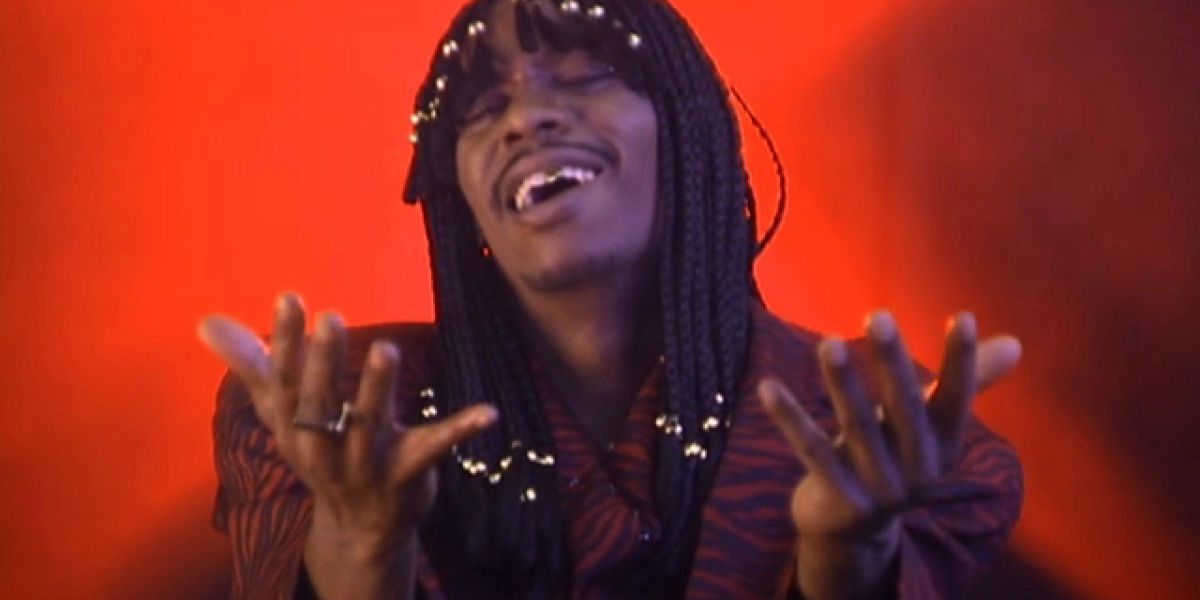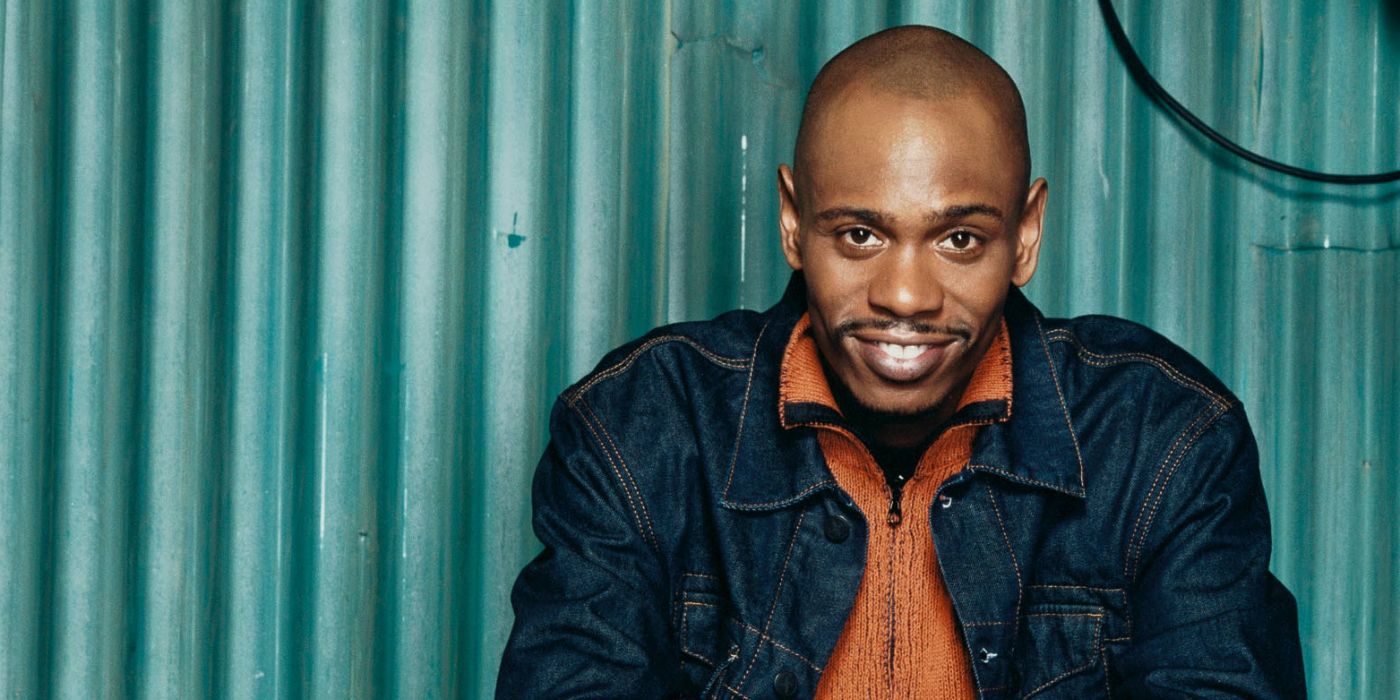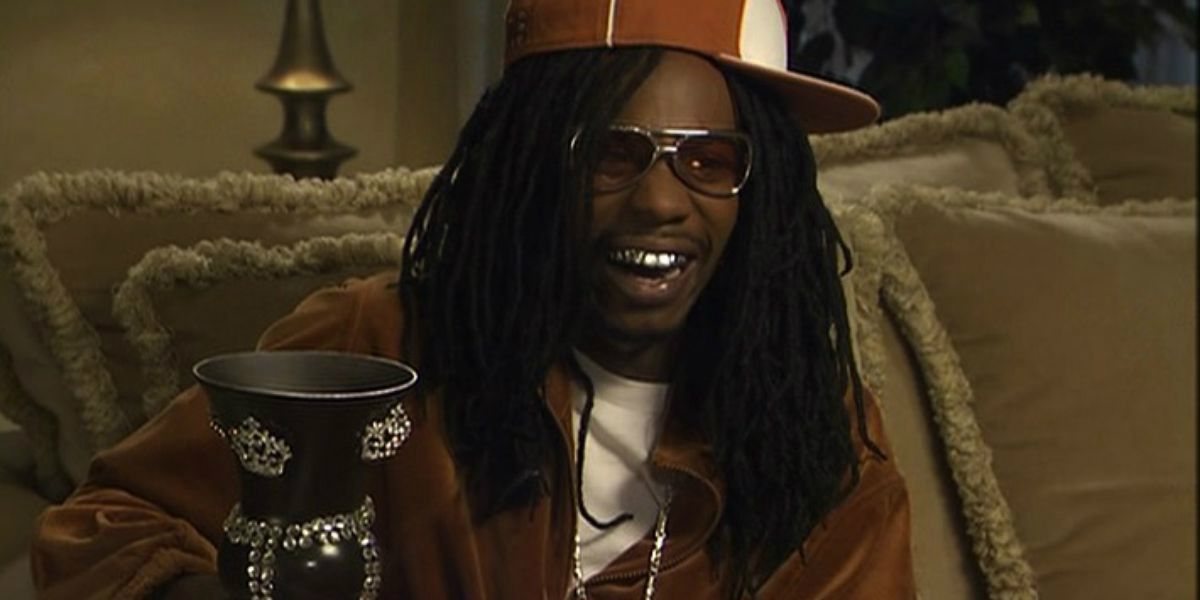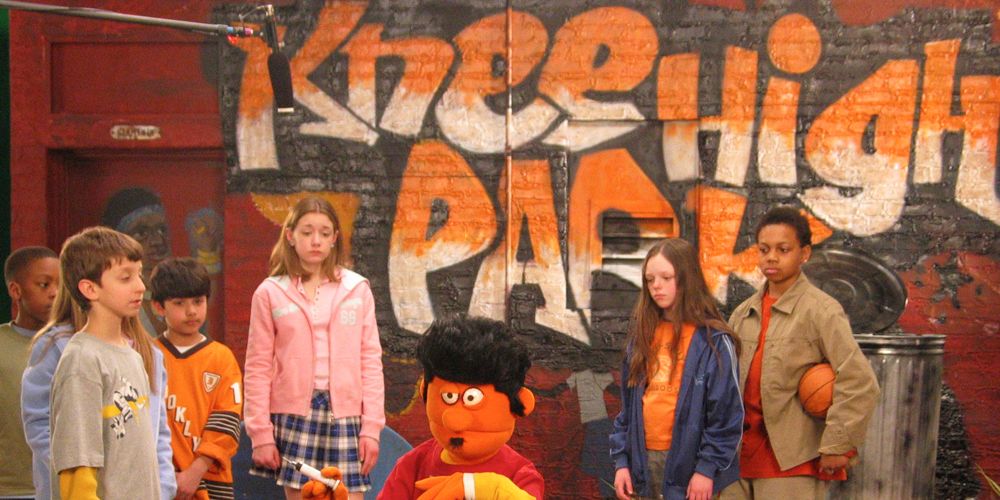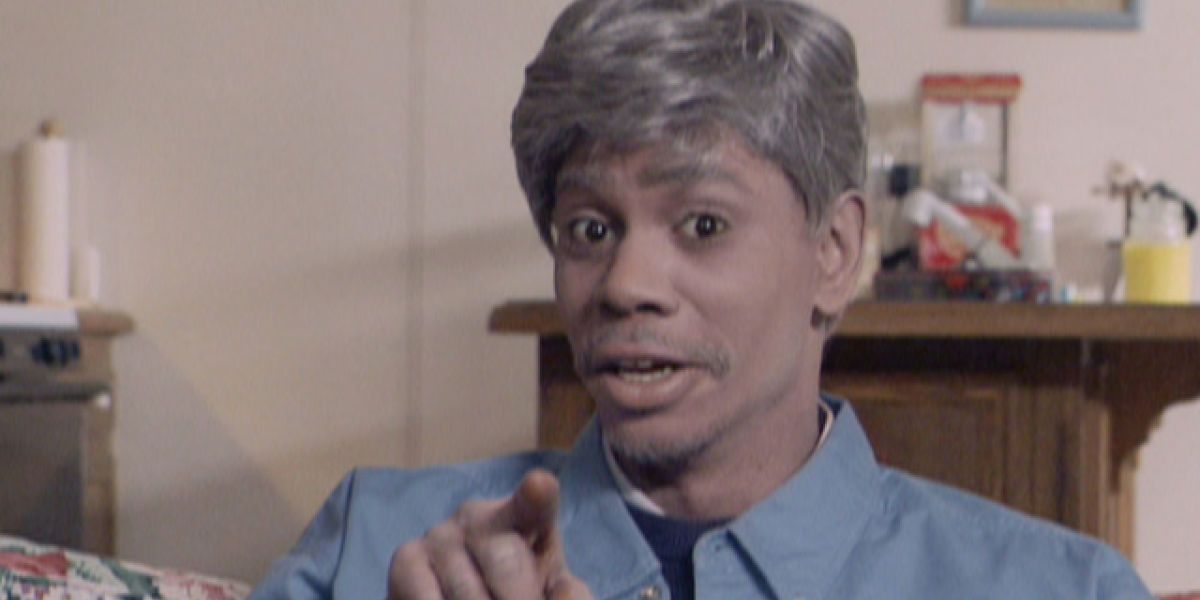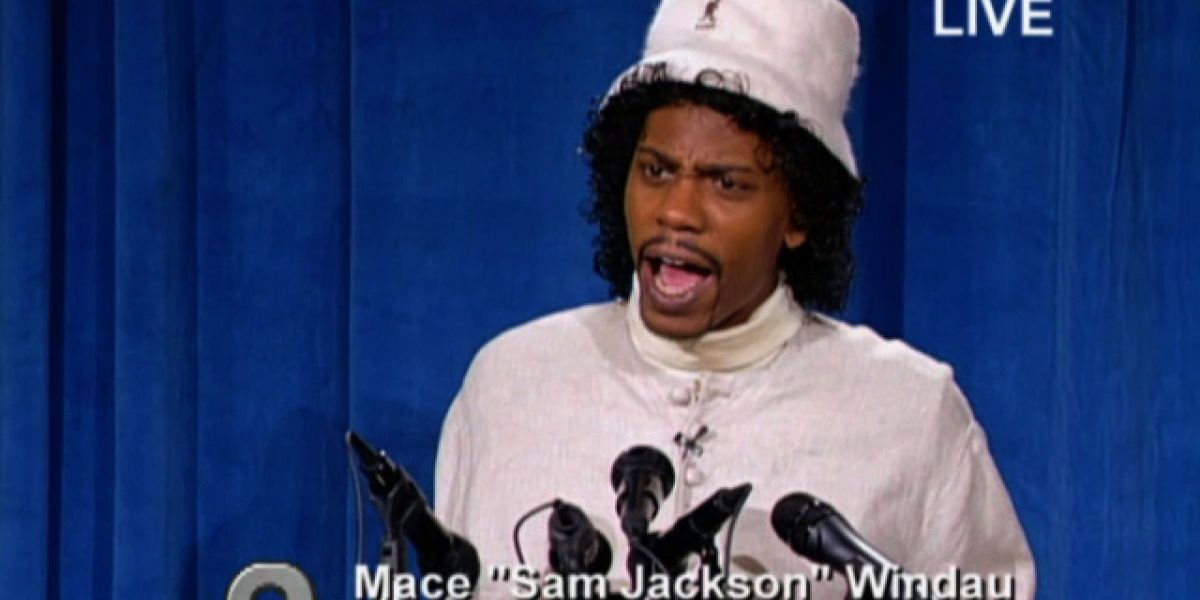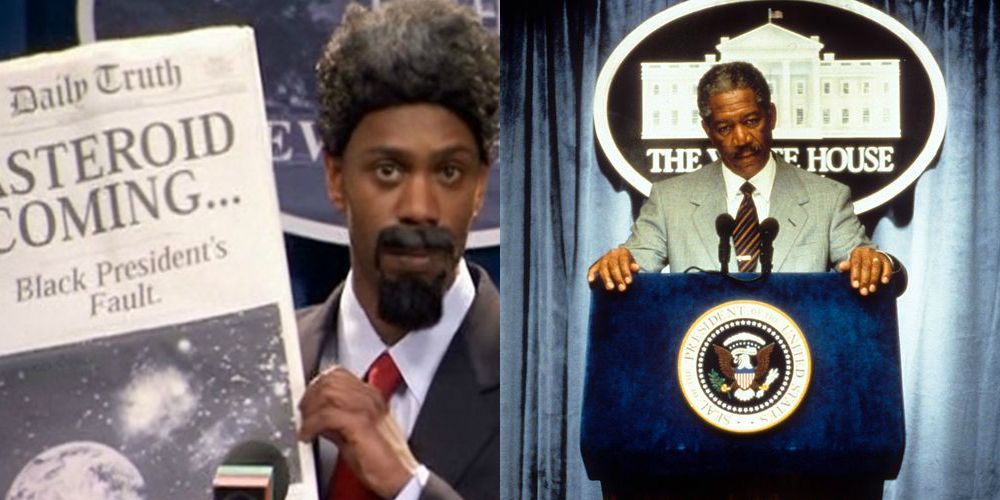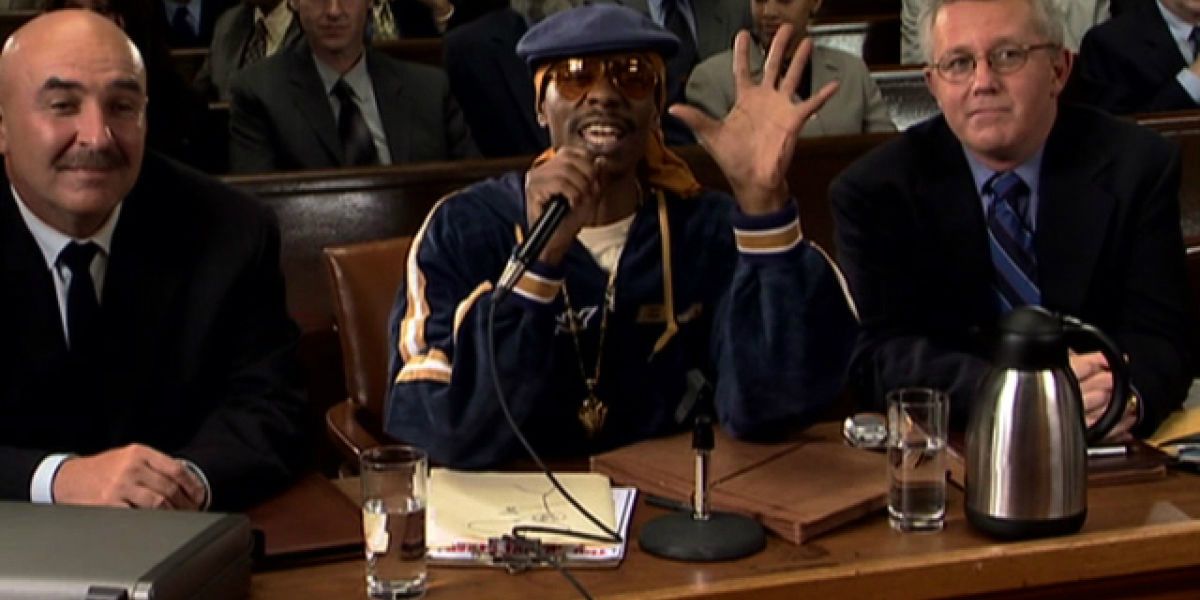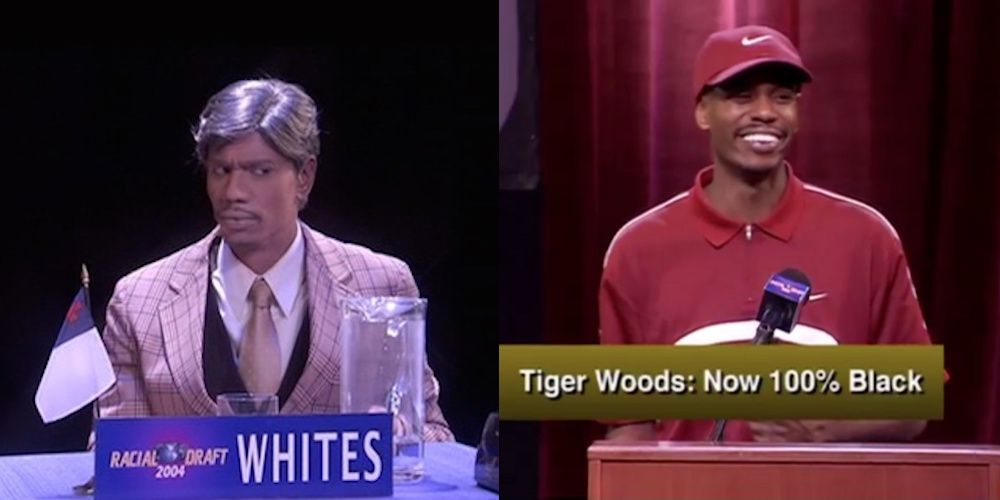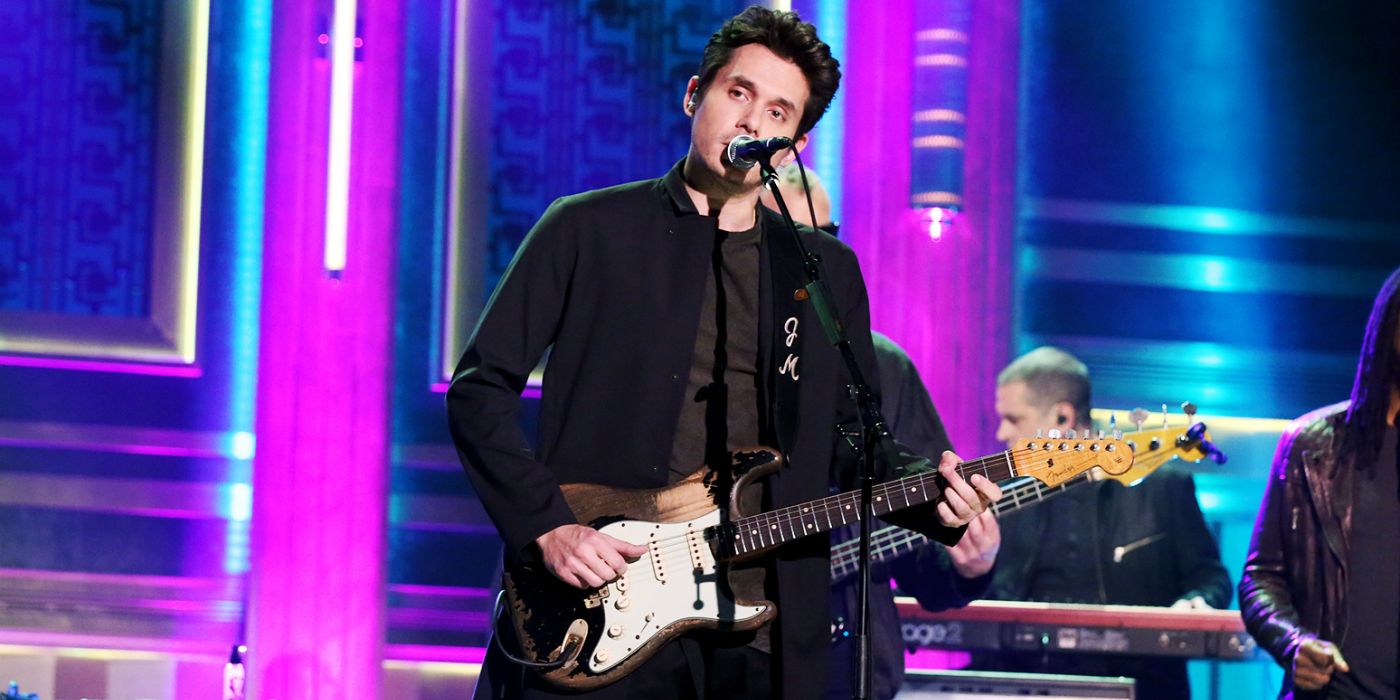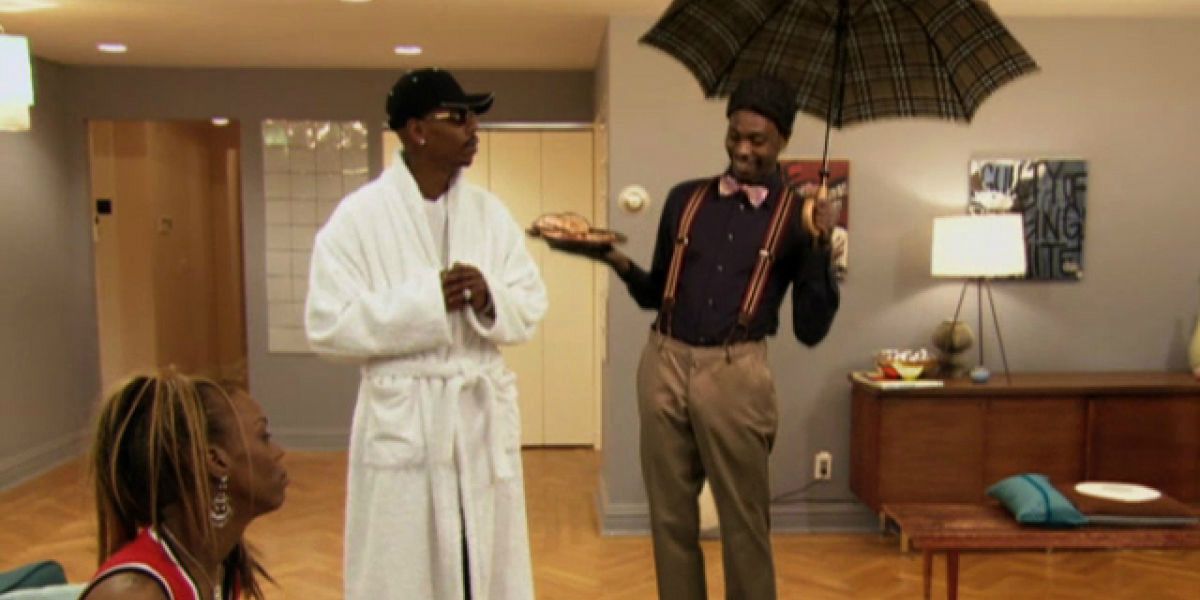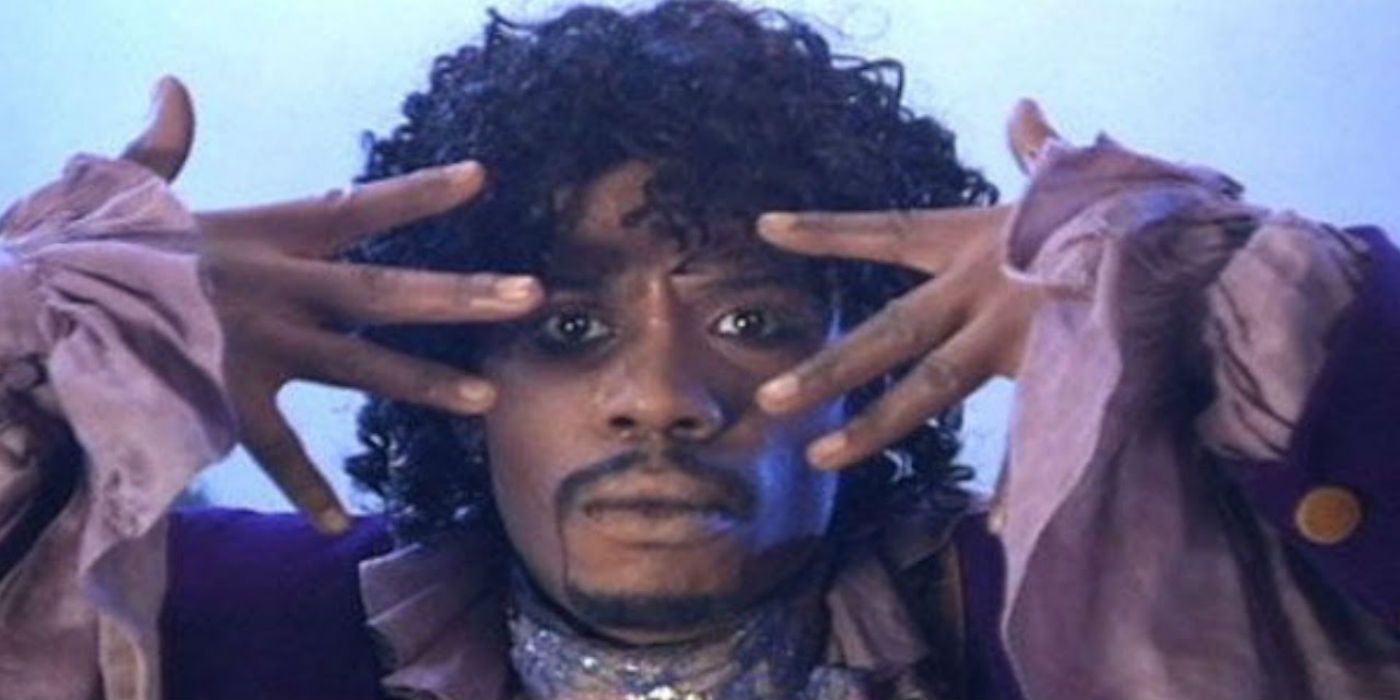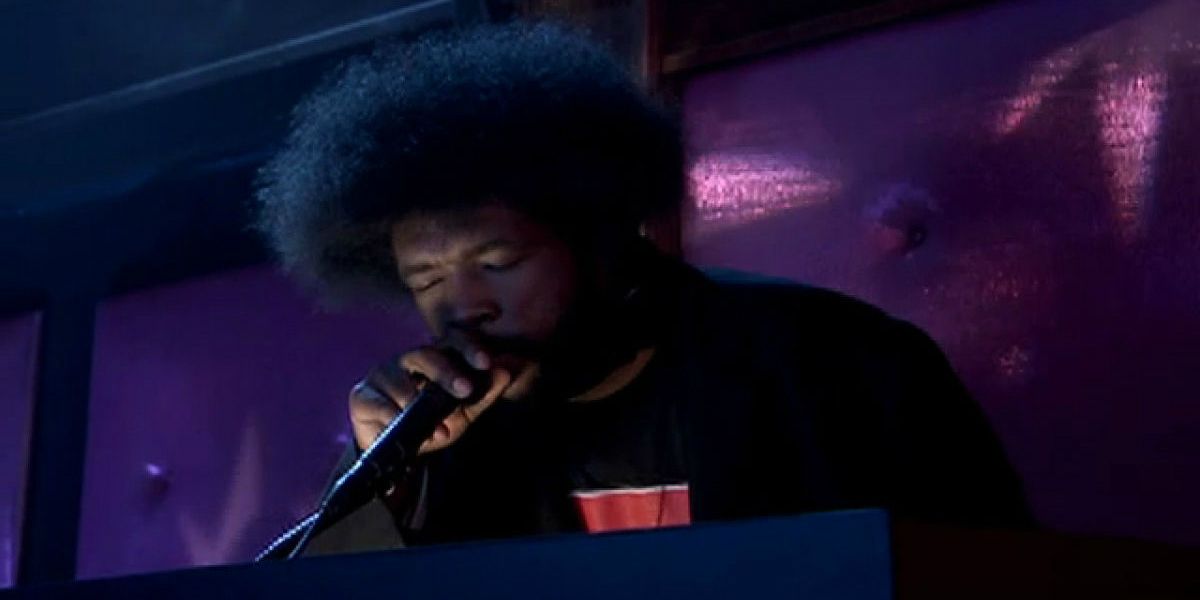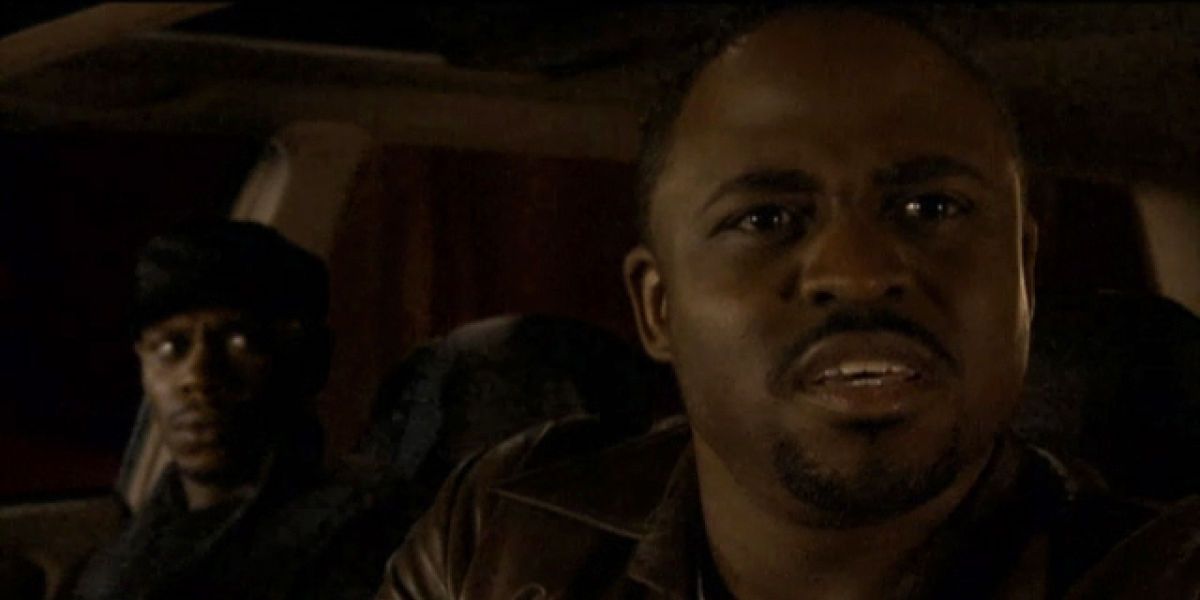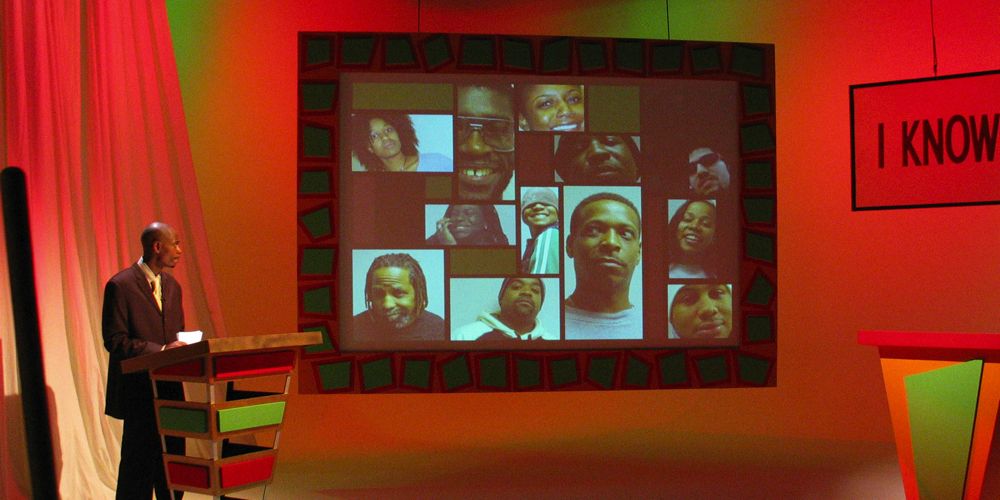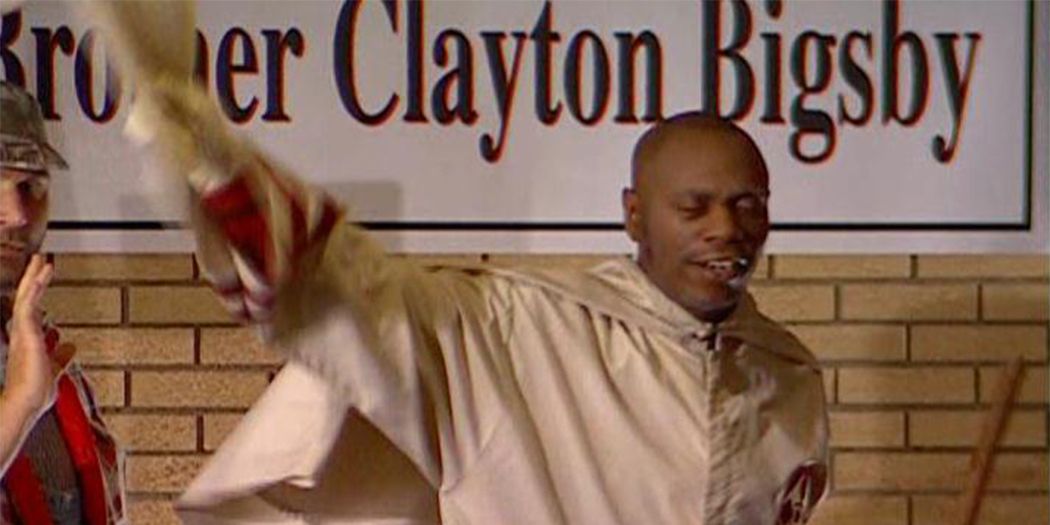On March 21, Netflix released legendary comedian Dave Chappelle's new comedy special, his first stand-up special since 2004's For What It's Worth. Chappelle, of course, is best known for his iconic sketch comedy series, Chappelle's Show. The series ran for two(ish) seasons from 2003-2006, and aired 33 episodes in all. Chappelle's Show wrapped up over a decade ago and an entire generation of comedy fans have come of age since Chappelle produced new TV material.
With the first of Chappelle's Netflix specials making its debut, it's the perfect time to go back and revisit his classic series. The following list contains Chappelle's Show's 15 Greatest Sketches To qualify as the greatest, a sketch must possess a combination of the show's signature elements: gut-busting jokes, pop culture relevance, and a scathing satirical eye.
When counting down the greatest sketches on such a popular series, we were forced to cut some insanely popular moments from the list. Chappelle's Show's brilliant writing and memorable performances made whittling the list down to 15 nearly impossible...
15. WHAT IS LIFE LIKE FOR LIL JON? (S02E06)
It's important to distinguish between Chappelle's Show's best and most popular sketches. One could make the case that his riff on Lil Jon makes for the most popular character to emerge from the series. It is more difficult to argue that those Lil Jon skits are the series' best.
Chappelle's Lil Jon parody appeared in several short skits over multiple episodes. In each sketch, Chappelle played Lil Jon, a popular southern rapper/producer known for shouting "Yeah, OK," and "WHAT," on hip hop tracks.
The sketches consist of Lil Jon finding it difficult to communicate with people with his poor hearing and (seemingly) limited vocabulary. Instead of having a dialogue, Lil Jon screams his catchphrases over and over. Just as the shtick gets old, Lil Jon breaks into a posh English accent and begins speaking like a University scholar. The simple premise works well in short bursts and viewers couldn't get enough. Lil Jon got so popular that fans interrupted Chappelle's live shows by shouting out his catchphrases.
The Lil Jon sketch is a silly and enjoyable parody, but far from the series' best creation. Chappelle's Show drifted back and forth between producing clever satire and juvenile potty humor (literal poop jokes). Loud, brash, and glib, the Lil Jon sketches fall into the latter category.
14. KNEEHIGH PARK (S02E10)
"Kneehigh Park" is Chappelle's thinly veiled jab at Sesame Street. The sketch takes the classic children's series' premise — happy kids and scruffy puppets learning about the world through songs — and brings it to the ghetto.
Every now and then, kid's shows produce "very special" episodes that deal with tough issues. Chappelle takes the very special episode concept and ratchets it up to 100. In "Kneehigh Park", it seems like every day is a very special episode.
Chappelle uses the puppets to lob criticisms at American drug culture. The segment points out the double standard between legal drugs (cigarettes, alcohol, and prescription pills) and illegal narcotics. The characters state people do drugs because life is hard and they're suffering, not because they're ambitionless thrillseekers. The sketch's Oscar the Grouch cypher even says he lives in a trash can to avoid consumerism's treadmill lifestyle — that's a pretty deep statement coming from a puppet.
There's a double cherry on top of this acid dream of a sketch. Snoop Dogg voices a venereal disease stricken puppet and Q-Tip leads young children in a song about safe sex.
13. TRADING SPOUSES (S01E10)
Back in 2003, the reality TV explosion was still in its early stages. As the genre rooted itself in pop culture, Chappelle's Show's team of writers stood in wait, sharpening their claws and ready to pounce.
The "Trading Spouses" sketch examined reality TV's ludicrous stakes. As Survivor and American Idol made a name for the genre, cheaply made, trashy, and exploitative series exploded in popularity. Chappelle took an absurd premise, swapping spouses, and added a dash of his signature racial satire. The result is a sketch that mocks reality shows while lampooning racial stereotypes.
In the sketch, Chappelle plays both of the swapped spouses, each one a broad racial stereotype. The black husband is a cigarette smoking, no-nonsense man with old-school values. The white husband is a repressed, socially conscious beta-male. The segment mines comedy from having the men acclimatize to each other's lifestyle. The sketch speaks to how insular world views shape who we become. The takeaway is that we must expand our cultural horizons or risk becoming caricatures.
12. STAR WARS JEDI Sex Scandal (S01E07)
Comedians often compare satire to the spoonful of sugar that helps the medicine go down. Satire creates a laughter buffer that helps people face bitter truths. In the Jedi controversy sketch, Chappelle shines a spotlight on the sex scandals that rocked the Catholic Church in the early 2000's.
In the sketch, Chappelle plays several characters, including Jedi Master Yoda. Yoda faces off with the press to address allegations of misconduct amongst the Jedi council. The situation only gets crazier once a tape emerges that proves Yoda was complicit in the wrongdoing, but when "Mace Windau" and "Jarth Mader" show up on the scene, you may just be convinced that the Jedi weren't the good guys after all.
Chappelle's Show aired in the wake of the sex scandal profiled in 2015's Academy Award winning Best Picture, Spotlight. The baby boomer's generation had difficulty discussing the birds and the bees with their own children, and for many, the allegations brought to light by The Boston Globe were unspeakable. The brilliance of the sketch is in how it insulates the viewer from discomfort. The sketch buries the difficult subject matter beneath layers of pop culture silliness — in this case, Star Wars. Chappelle forces viewers to consider the atrocities without calling out names or defaming institutions.
11. WHAT IF AMERICA HAD A BLACK PRESIDENT? (S01E10)
In the decade since Chappelle's Show ran, some sketches aged better than others. Yet, in the case of Episode 10's black president parody, the sketch works even better today.
The segment aired in 2003 amid the height of the Bush administration. At that time, even the most optimistic pundits didn’t foresee a black president in the nation's immediate future. Chappelle plays Morgan Freeman in character as the black president he portrayed in the 1998 film, Deep Impact, a disaster movie about an asteroid on a collision course with earth. Chappelle takes the film's concept and reshapes it to hilarious effect.
The segment begins with the president angered by a newspaper headline claiming the asteroid to be his fault. With the end of the world only hours away, the president strikes back at the irksome press. In an act of pettiness, he unveils several mind-blowing government secrets, and the escalating series of reveals serve as middle-finger salutes to the president's haters. The gag prophesizes the partisan gridlock which plagued the Obama administration. Watching a politician with nothing to lose vindictively lash out doesn't get old.
10. WHITE-COLLAR CRIMINALS (S02E05)
In 2009, documentary filmmaker Michael Moore riled people up with his film, Capitalism: A Love Story. Armed with examples from 2008's financial collapse, Moore argues that white collar criminals have it easy. Several years prior, Chappelle used his series as a platform to make the same point.
Chappelle's sketch draws attention to an imbalanced criminal prosecution system, and he makes his point by swapping white collar criminals with drug dealers. The segment features an executive bragging about his company's criminal misconduct as he gets ready for bed. As soon as he starts seducing his wife, a SWAT team bursts in, shoots his dog, and aggressively apprehends him. The sketch cuts to a gun-toting drug dealer played by Chappelle. The drug dealer receives a phone call from police detectives who politely ask when he's available to turn himself in.
Chappelle doesn’t use subtext, double meanings, or clever wordplay to make his point here. Instead, the role reversals call out the criminal system's blatant preferential treatment.
9. THE RACIAL DRAFT (S02E01)
The racial draft is another sneakily brilliant segment. The sketch's outlandish premise, wry humor, and over the top characters may cause deep belly-laughs right from the onset. But, like all of Chappelle's best sketches, the racial draft calls for a deeper level of critical thinking.
People tend to conflate race and culture. The colour of a person's skin matters less than the influence of the culture they inhabit. Chappelle uses a draft system and racially ambiguous celebrities like Tiger Woods and Mariah Carey to drive this point home.
The premise is that blacks, Jews, Latinos, whites, and Asians take turns claiming multi-racial celebrities. The draft system goes off the rails once races base their selections on how celebrities identify themselves instead of on their ancestry. For example, the Asians draft the Shaolin worshiping rap group, The Wu-Tang Clan.
Chappelle's sketch points out that we arbitrarily categorize race. Racial categorizations have many loopholes even when the subjects are literally black and white. The sketch shows us that as soon as bi-racial people get thrown into the mix, society's racial categories stop making sense.
8. CAN WHITE PEOPLE DANCE? (S02E03)
In this segment, Chappelle examines the myth that white people can't dance. Chappelle posits the theory: the problem is not that white people can't dance, it's that they aren't dancing to music that suits them. Chappelle recruits John Mayer (and an electric guitar) and sneaks into white folks' habitats to disprove the myth.
Chappelle once again takes a widely-held misconception and flips it on its head, as he likes to mock common myths by creating skits where these myths are true. Chappelle takes dancing stereotypes and exaggerates them to the Nth degree. White people not only dance to electric guitar, they're enraptured by the music.
Chappelle doesn't just set his sights on white people, though. Using the "it all depends on the music" rule, he lambasts black and Latino dancing myths. As silly as the skit gets, it's no more ridiculous than assuming skin color dictates who can dance on beat.
7. MAKING DA BAND (S02E10)
Reality TV show plot gimmicks, low budgets, and melodrama made them easy targets for Chappelle's Show parodies. Chappelle was in top form when he set his sights on the cast of MTV's Making the Band 2.
Making The Band focused on an up and coming hip hop group. Dubbed, Da Band, Sean "P. Diddy" Combs hand-picked each member with the aim of bringing them on board his Bad Boy record label. The problem was that the members didn't get along and weren't good at taking direction. Chappelle couldn't resist taking shots at the dysfunctional group, and in a total baller move, Chappelle cast Da Band in their own parody sketch.
Chappelle plays the group's taskmaster, P. Diddy, as well as Dylan, the group's most egotistical member (with a truly bulletproof "top 5 rappers of all time" ranking). The sketch ridicules P. Diddy's narcissism, the group's flippant attitude, and reality TV's manipulative editing style. While younger viewers won't get many of the references, the sketch's parody of tired reality TV tropes still holds up.
6. CHARLIE MURPHY'S TRUE HOLLYWOOD STORIES: PRINCE (S02E05)
Chappelle's Show followed up the insanely popular Rick James sketch (we'll get to that later) with another "True Hollywood Stories" skit in the next episode. If there was one superstar whose mystifying aura and sexual magnetism could match James', it was Prince. Fortunately for audiences, Murphy had a story about The Purple One too.
Tales of Prince's bizarre antics circulated around Hollywood for decades. Questlove and Kevin Smith each tell odd stories that feel in line with the bizarre version of the pop superstar in Chappelle's sketch. In the story, Murphy joins Prince's crew for some post-club partying, which later turns into an impromptu game of hoops. That's when things get weird. Prince's squad plays the game in full-on Purple Rain stage attire; lace, frills, heels and all.
The segment features several little touches that play to Prince's out of this world personality. Fog wafts through the background, Prince holds eye contact with the camera, and he even hangs on a basketball rim without using his hands.
Fans site the sketch as one of the series' best, but the ultimate compliment came a decade later. In 2013, Prince took an image of Chappelle in character as Prince and used it for the album art for his single, Breakfast Can Wait.
5. NEW TUPAC MUSIC (S03E01)
As well as Chappelle's sketches work as social commentaries, some of the series' best jokes are juvenile and silly. The new Tupac music sketch is an example of plain old observational comedy that works like gangbusters.
In the sketch, Chappelle is enjoying a night out in the club when the DJ, Questlove of The Roots, plays a new Tupac track. The legendary hip hop artist died in 1996, of course, but his song describes vaguely recent events. As the song goes on, Tupac's lyrics become hyper-specific to the early 2000s. The song culminates with Tupac broadcasting events happening inside the club.
Many Tupac fans considered his music prophetic (part of Tupac's mystique is that he often rapped about dying young, after all). Tupac was also one of hip hop's most prolific rappers ever, and posthumous Tupac albums continued dropping several years after his death. To this day, fans debate whether Tupac is still alive. Chappelle's sketch trolls conspiracy theorists and respectfully pokes fun at Tupac's legacy.
4. WAYNE BRADY REPLACES DAVE (S02E12)
Wayne Brady is front and center in the series' most unconventional sketch. The episode kicks off with an eerily prophetic (Tupac-ish, if you will) moment. In the segment, Chappelle decides he's had enough and walks away from his show. Comedy Central then decides to hire Wayne Brady as Chappelle's Show's new host.
The sketch runs throughout the entire episode and has the same surrealist vibe as certain episodes of Louie and Atlanta. Once Brady takes over hosting duties, Chappelle loses the respect of the audience, his friends, and his family. He eventually decides he wants his job back and embarks on a mission to reclaim Chappelle's Show.
The laughs come from how the show plays with Brady's non-offensive American sweetheart image. In an homage to Training Day, Brady takes Chappelle for a ride through the city. With every stop along the way, Brady reveals more of his true self: a foul-mouthed, misogynistic, drug peddling thug.
The sketch makes a bold statement while also being laugh-out-loud funny. The episode comments on how black entertainers suppress their blackness to appear non-threatening to mainstream audiences. It also highlights the level of competition between black actors for a limited number of quality roles.
3. I KNOW BLACK PEOPLE GAME SHOW (S02E08)
"I Know Black People" is one of the series' most unique sketches, playing out like a TV quiz show similar to Jeopardy. The best part is that the contestants aren't actors, they're real New Yorkers. Acting as host, Chappelle quizzes a cop, a social worker, a TV show writer, a professor of African-American studies, a high school student, a barber, a grocery store owner, and a DJ with "a lot of black friends."
The questions and the contestant's answers are pure comedy gold. Nothing beats hearing a straight-laced African-American studies professor chime in, "Pimping ain't easy." However, it's Chappelle's laser-focused wit that takes the skit to another level. No matter the contestant's response, Chappelle quickly flips the answer into a commentary on black culture.
Chappelle made a name for himself as a stand-up comic, and the "I Know Black People" sketch let him flex those same comedic muscles. When Chappelle put his killer wit to use in an unscripted setting, TV audiences saw another side of his vast talent. Fans still clamor for Chappelle's return to sketch comedy to this day. After watching the "I Know Black People" segment, a late night talk show may be a better idea.
2. CHARLIE MURPHY'S TRUE HOLLYWOOD STORIES: RICK JAMES (S02E04)
Chappelle's Show's Rick James sketch stands tall as the series' defining moment. The segment features Murphy discussing his zany encounters with R&B superstar Rick James during the early 1980s. As Murphy spills James' drug and alcohol fueled antics to the camera, Chappelle re-enacts key moments in flashbacks.
The highly quotable sketch exploded into pop culture conversations with the force of a nuclear blast. Chappelle's Show didn't have the exposure of a major network show like Survivor. But despite it's somewhat limited reach, the sketch was meme-worthy before people became hip to memes. The jokes went viral before people had Gmail, YouTube, or smartphones to share them. By the end of 2004, "Cocaine is a hell of a drug" and "I'm Rick James bitch," became the new "Waaaaasuuuuuup.?!"
The Rick James sketch may be Chappelle's funniest, but it's not his best. The segment mines comedy from silly characters in insane situations. Chappelle's best sketches are all funny, but his greatest sketch is also insightful, bold, and subversive.
1. CLAYTON BIGSBY: THE BLACK WHITE SUPREMACIST (S01E01)
Racial politics are the driving force behind Chappelle's comedy and a recurring theme throughout the show. For three seasons, the best sketches dealt with racial biases, stereotypes, and misconceptions. Interestingly enough, the best all-around showcase for the series' blend of silliness, satire, and political statements aired in the series' very first episode.
In the sketch, a Frontline News reporter interviews Clayton Bigsby (played by Chappelle), one of the white-supremacist movement's leading voices. The sketch's laughs come from Bigsby, a blind southerner, not knowing that he himself is black.
Once you get past the farcical concept of the clueless black-white supremacist, the sketch works on a much deeper level. Bigsby's hatred is as intense as any of his white peers, and he uses it to build up a devout following. Bigsby's "success" makes a powerful statement in several ways. First, Bigsby's ascension shows that people often fall into movements behind hypocritical leaders. The character also informs viewers that racial biases are skin deep, and toxic environments can breed hatred in anyone.
The Clayton Bigsby segment strikes a perfect balance of hilarity and insight. At the same time, the sketch expresses a harsh truth: monsters are not born, they're bred. It does all this while being fall-out-of-your-seat funny, of course.
--
What did you think of our rankings? Did your favorite sketch make the cut? Sound off in the comments!
Netflix Original Dave Chappelle is now available on Netflix.

